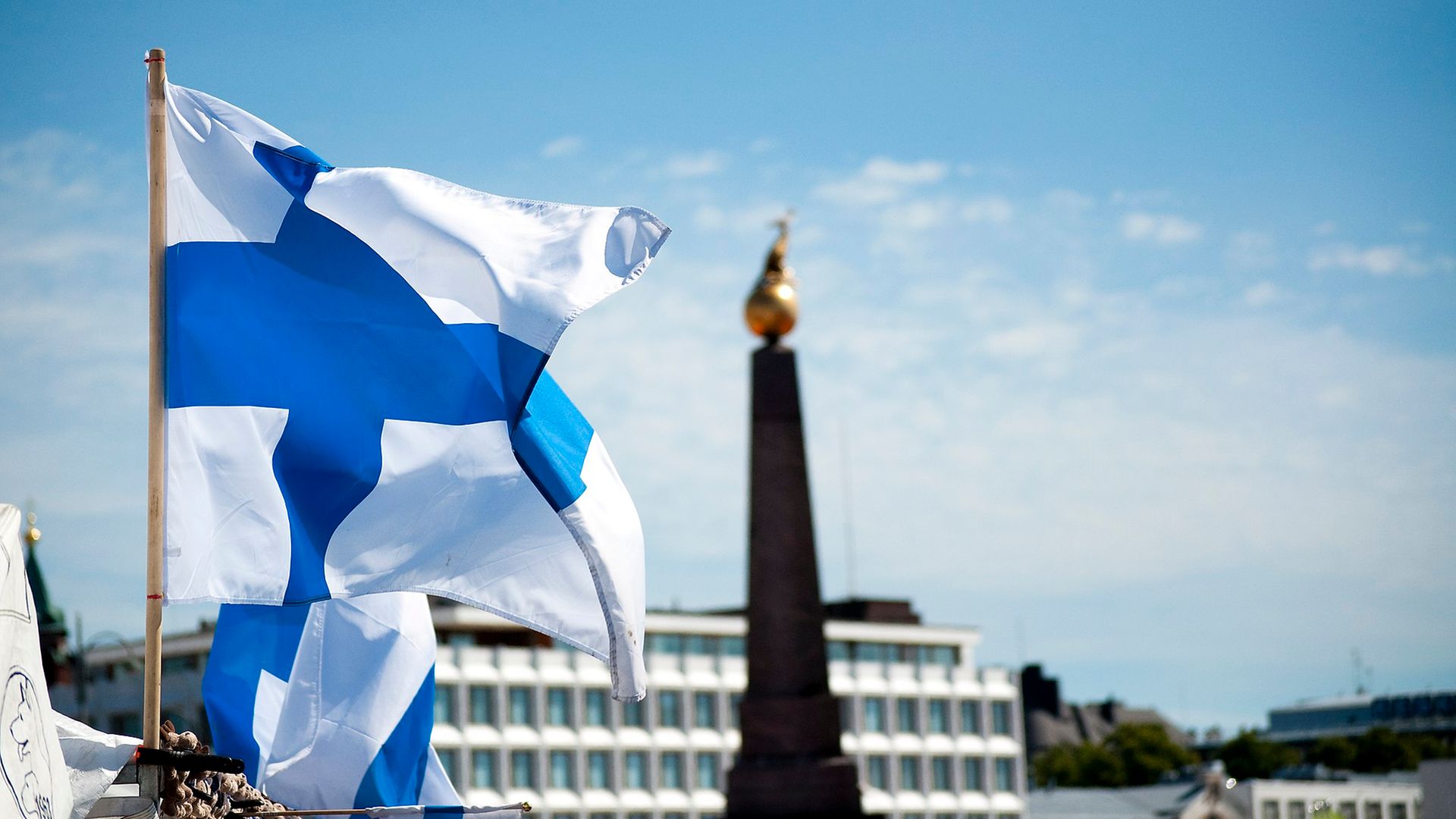
No country in the world is having a good time right now. But – coronavirus aside – why does Finland keep topping the international happiness charts?
According to the old Nordic joke, a Swede goes into a bar in Helsinki. The chirpy Swede takes his drink and says “cheers” to the Finn on the barstool next to him, who grumpily responds “hey, what’s going on here – are we talking or drinking?”
The image of the morose and monosyllabic Finn might be a stereotype. But many Finns do take a perverse pride in their perceived taciturnity. Consequently, they reflect with wry amusement on their country’s recent dominance of the World Happiness Report rankings. In the 2020 report, Finland finished top of the poll for the third successive year.
So how did a country with a dour reputation come to fare so well in what is a serious, evidence based social science survey of national happiness?
As the renowned Columbia University professor and co-creator of the World Happiness Report Jeffrey Sachs has explained, happiness is not “primarily a measure of whether one laughed or smiled yesterday”. Rather, the researchers analyse people’s “satisfaction with the way their life is going”.
On that basis, Finland and its Nordic neighbours Denmark, Iceland and Norway consistently dominate the top places in the rankings (Norway came top in 2017, as did Denmark in 2013 and 2016).
These countries all score highly on the criteria that social scientists have identified as the best indicators of happiness and well-being. These include good quality public services, strong welfare safety nets, low crime rates, social solidarity, prosperity and easy access to leisure and nature.
Most of all, these countries prioritise achieving a balanced life for their citizens, which Professor Sachs says is “the formula for happiness”.
Working hours are shorter than the average for comparable developed nations. Which is not to say that the Nordics are slackers. Rather, they prize quality and effectiveness, and condense more work into a shorter time, with fewer breaks and time-wasting meetings. Working late is seen as a failure to get things done, not a sign of commitment.
The economic success of these societies suggests that this approach works. It is bolstered by a balance of flexibility for employers and security for employees. Firms are relatively free to hire and lay-off workers. But, crucially, the stress of this for employees is drastically reduced by the existence of a generous social security safety net.
Danish workers, for example, contribute to an unemployment insurance fund that gives them up to two years continuing pay should they lose their job. They also receive training to upgrade their skills and personalised advice sessions to help them to re-join the workforce at the earliest opportunity. The result is widespread comfort amongst workers that being made unemployed is not the catastrophe it can be elsewhere.
In a virtuous circle, the prosperity generated by the Nordic economic system in itself increases citizens’ sense of well-being. As Sachs acknowledges, “it’s no joy to be poor”.
Public happiness and national prosperity is further enhanced by the existence of high-quality public services. Perhaps most of all, Nordic education systems are generally outstanding. Finland’s school system has attracted particular international attention as a model to emulate. Finnish schools are notable for their openness to innovative teaching ideas and flexibility in using different approaches to meet the needs of each individual pupil. Finland regularly appears near or at the top of the Programme for International Student Assessment (PISA) ratings for key subjects and skills such as reading, maths and science.
Not that PISA ratings appeal much to Finnish educators. Their students take few tests and there are no rankings or comparisons between schools or
regions. The few private schools in existence barely warrant the description, as they too receive public funds, follow the same national core curricula and are forbidden from pursuing financial gain.
As this suggests, the Finns’ overriding objective is to provide an equally high standard of education to all children, whether they are from the inner cities, posh suburbs or remote villages. This commitment is underpinned by their approach to teacher recruitment. Most teachers come from the top 10% of the nation’s graduates, have masters’ degrees in education and are paid accordingly. The ratio of teachers to pupils is also unusually high by global standards.
The ethos of egalitarianism and provision of strong collective services have other beneficial impacts on Nordic people’s lives. In the 2020 survey, 91% of Finns said they were satisfied with their president, Sauli Niinistö, and 86% expressed trust in the police.
This faith in their institutions and each other comes into its own during times like the current coronavirus crisis. It generates a valuable sense of shared responsibility and action, and a level of trust that makes people more likely to follow crucial advice from respected government officials. Prime minister Sanna Marin is receiving rave reviews for her handling of the pandemic and is the favourite in the polls to succeed Niinistö as president in 2024.
None of this public sector excellence comes cheap. Taxes and prices are generally high across the Nordic region. But their overall prosperity and the sense of well-being amongst their populations show that it is money well spent.
Best of all, the limited amount of time Nordic people spend on earning it means they have plenty of scope for pursuing family life and leisure activities – another high scoring factor on the World Happiness Report index. In the Finn’s case, their national team’s first ever qualification for a major football tournament means their free time may include making more noise and socially-distanced new friends in bars than usual whilst watching the Euros this summer.
What do you think? Have your say on this and more by emailing letters@theneweuropean.co.uk









